Grammar practice Reading Worksheets for Ages 6-9
5 filtered results
-
From - To
Enhance your child’s language skills with our engaging "Grammar Practice Reading Worksheets" designed for ages 6-9. These expertly crafted worksheets help young learners understand and apply essential grammar rules through fun reading activities. With a focus on topics such as punctuation, sentence structure, and parts of speech, each worksheet promotes interactive learning and strengthens comprehension. Perfect for classroom use or at-home practice, our worksheets cater to different learning styles and skill levels, ensuring your child builds a solid grammar foundation. Explore our collection today and watch your child’s confidence and proficiency in reading and writing soar!
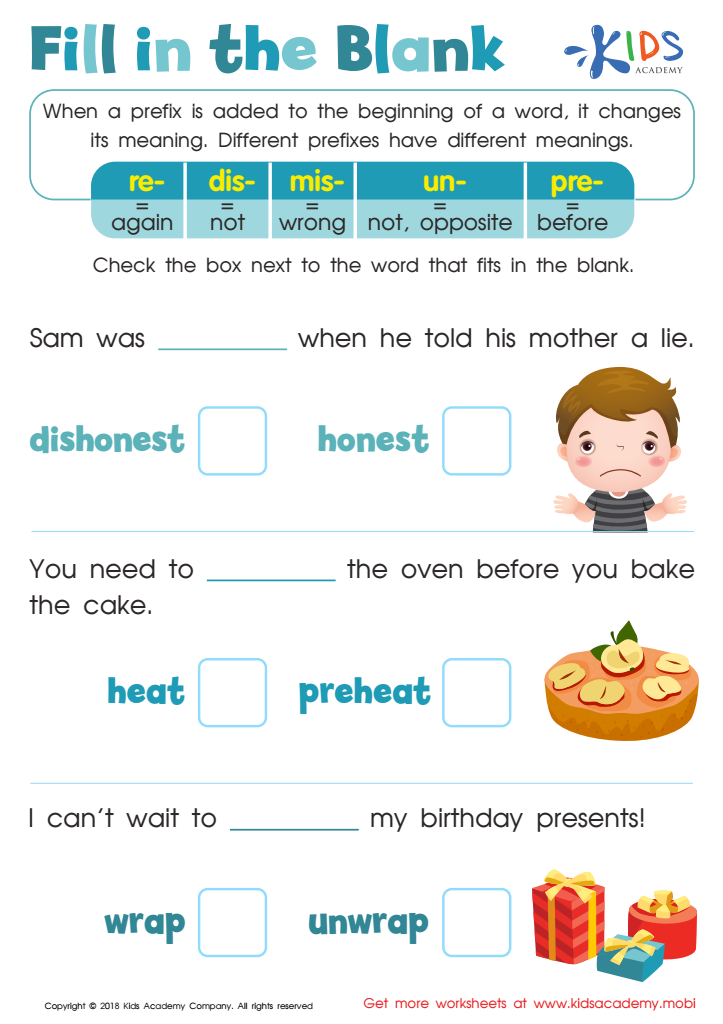

Reading: Fill in the Blank Worksheet
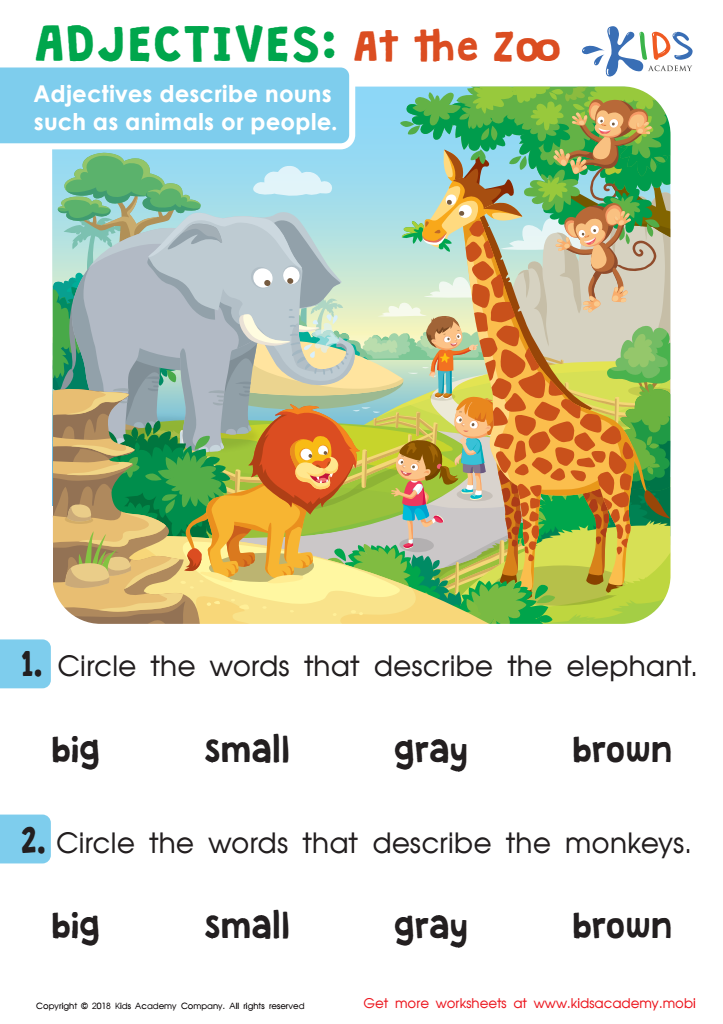

Adjectives: At The Zoo Worksheet
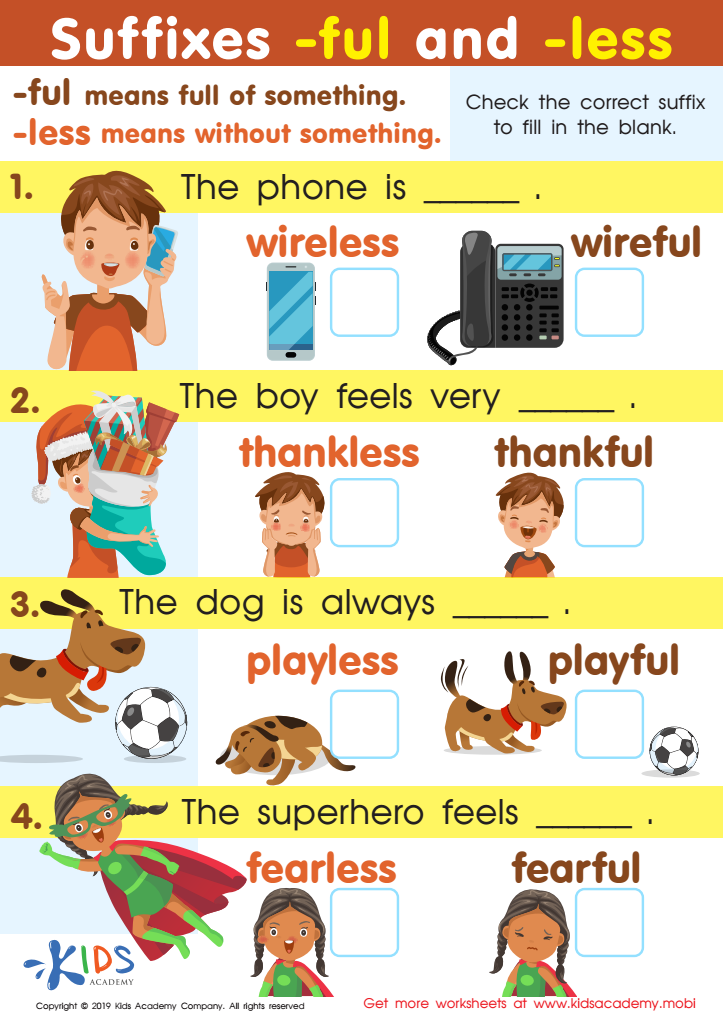

Suffixes –ful and –less Worksheet
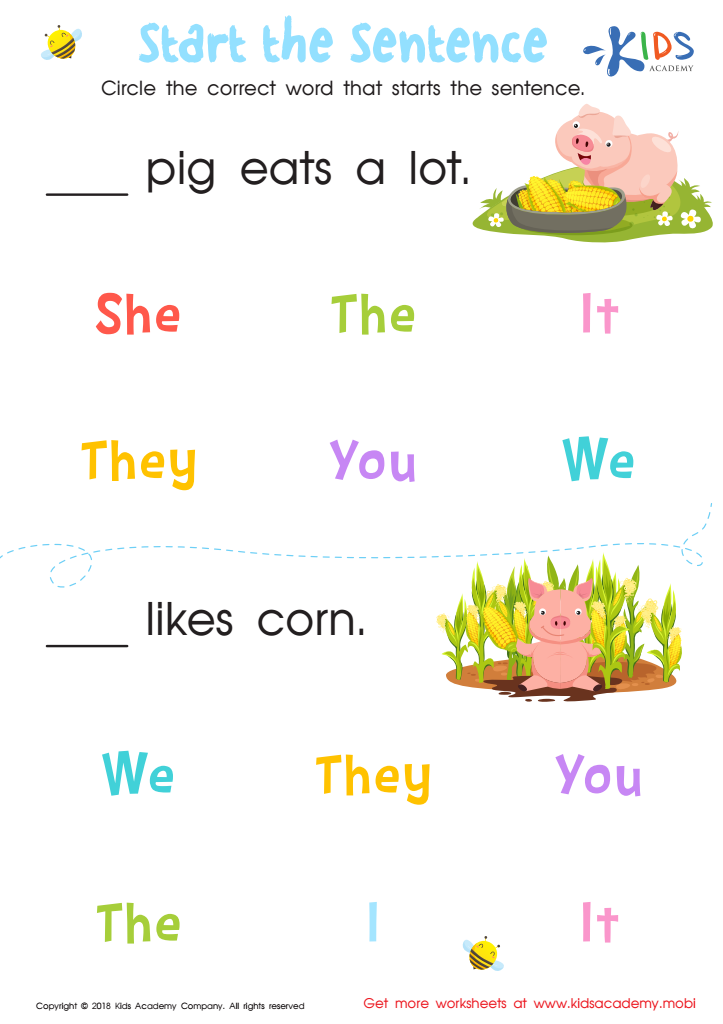

Start the Sentence Worksheet
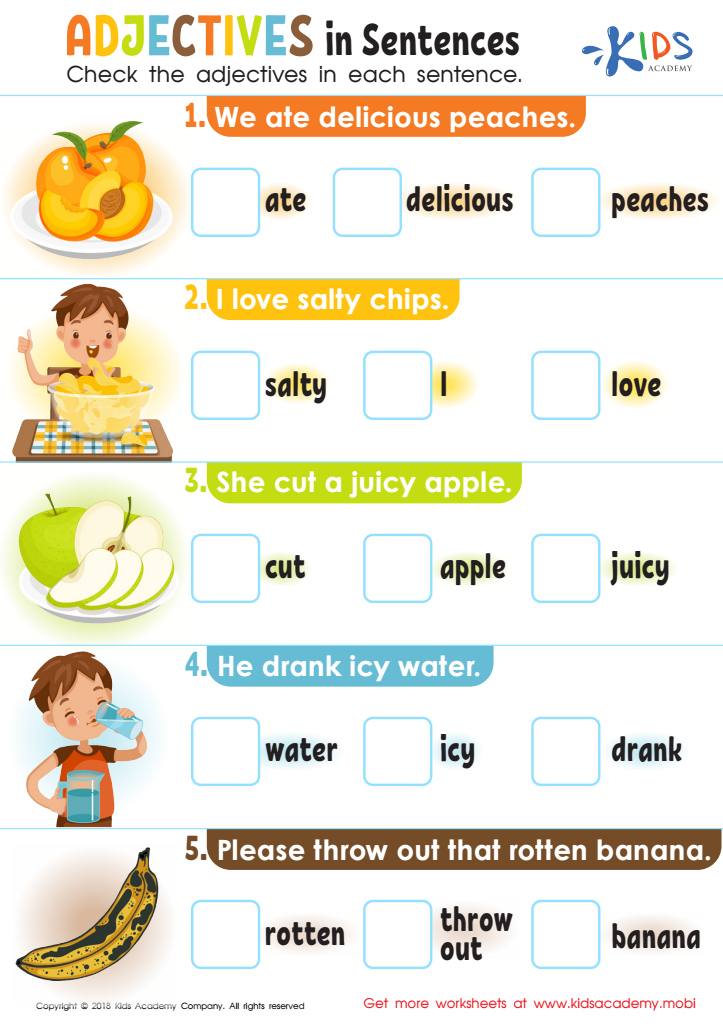

Adjectives in Sentences Worksheet
Grammar practice and reading skills are fundamental for children ages 6-9 as they lay the foundation for effective communication and future academic success. At this crucial developmental stage, young minds are highly receptive and capable of absorbing new concepts, making it the ideal time to instill strong language skills.
Firstly, proper grammar use and reading comprehension enable children to express themselves clearly and accurately, both verbally and in writing. This enhances their ability to share ideas, ask questions, and engage in thoughtful discussion. Moreover, mastering grammar rules helps in structuring sentences correctly, which is imperative for crafting coherent stories, essays, and assignments as they progress through school.
Reading practice, on the other hand, boosts vocabulary, improves attention span, and fosters a love for learning. It immerses children in a world of knowledge, imagination, and critical thinking. Exposure to various texts enriches their understanding of different cultures and perspectives, thereby broadening their cognitive horizons.
Additionally, early mastery of grammar and reading reduces the struggle with more complex subjects in later academic years. Studies have shown that strong literacy skills are linked to better performance in other subjects, including math and science.
Parents and teachers who prioritize grammar practice and reading are setting their children on a path to academic excellence, self-confidence, and lifelong learning gratification.

 Assign to My Students
Assign to My Students





















